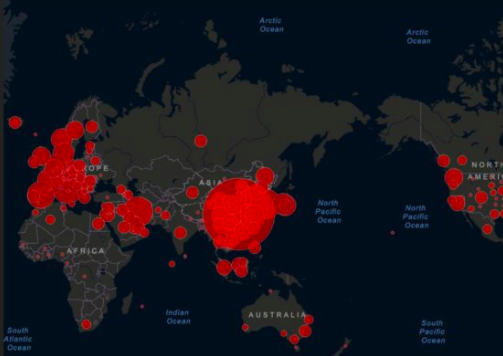Post by Neeshé Khan (2018 Cohort)

After being in self isolation for what feels like an eternity like many others I am also starting to get warped for what time it is. It’s hard for me to remember when things happened or which day we’re on. I’m experiencing a weird fatigue setting in which is the same for many of the people I’ve been speaking to, despite LinkedIn being on steroids. The fatigue also means that I’m finding it hard to find inspiration to write this blog but here we are – it’s Friday and things must get done. So, welcome to another blog post!
In my earlier posts I wrote about remote working and some pitfalls this could bring for your cybersecurity during Covid-19. Unsurprisingly, as more people have shifted to working from home (WFH) cyberthreats have been on a sharp increase. Some of you might be aware of Zoom (group meet up software) vulnerabilities that allowed hackers or unauthorised users to attend closed sessions which quickly became known as Zoom Bombings. Some kids innocently did some Zoom Bombings to prank their teachers while hackers used this to cause disruptions to virtual classrooms in Singapore.
The National Centre for Cyber Security (NCSC) and the National Centre in the US have issued a joint statement this month to announce that cybercriminals are using Covid-19 themed content to lure in users that are then cyberattacked.
This really shouldn’t be a surprise. There was an interesting mapping done by one of the US universities that showed how the virus moved across the US after spring breakers partied and went back to their respective homes. In the UK there have been several news stories on the BBC talking about an app by the government which will track Covid-19 infections. Given this context it doesn’t take a rocket scientist to see what the easiest bait is for a cybercriminal. To me it’s the same as discussing that you’re planning to upgrade your home with new windows in public places (either online or in real life) and then suddenly seeing adverts that talk about a local window company or worse, getting cold calls from them. Plus, with a pandemic that’s sucker punched economies, had impacts that were unforeseen or unknown and where you have authorities proactively conceal the number of infections, it’s not surprising that Covid-19 becomes an interesting concept to explore, track and be ‘in the know’ for.
So, what can you do to stay safe online. I would suggest reading the news once or twice a day from a trusted source, ideally in static text (such as articles as opposed to interactive graphs), avoid disclosing your location to check the number of cases in your local area and always be wary of clicking links that are from people you don’t know. Even if the links are from people you might frequently speak with, be alert and notice if something ‘doesn’t feel right’ because their account could’ve been hacked. Trust your instincts with content online, listen to that small voice in your head that’s usually right and try to supress (if not temporarily extinguish) your curiosity for the time being. While you’re focusing on suppressing your curiosity, practice some mindfulness or Netflix binge watch the Tiger King.
Stay safe and my best wishes your way. Until next time!
–originally posted on Neeshé’s blog
